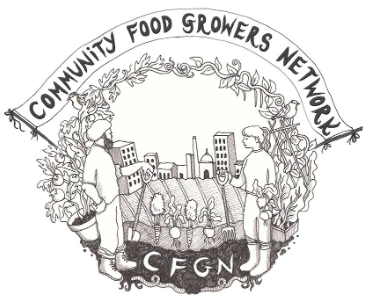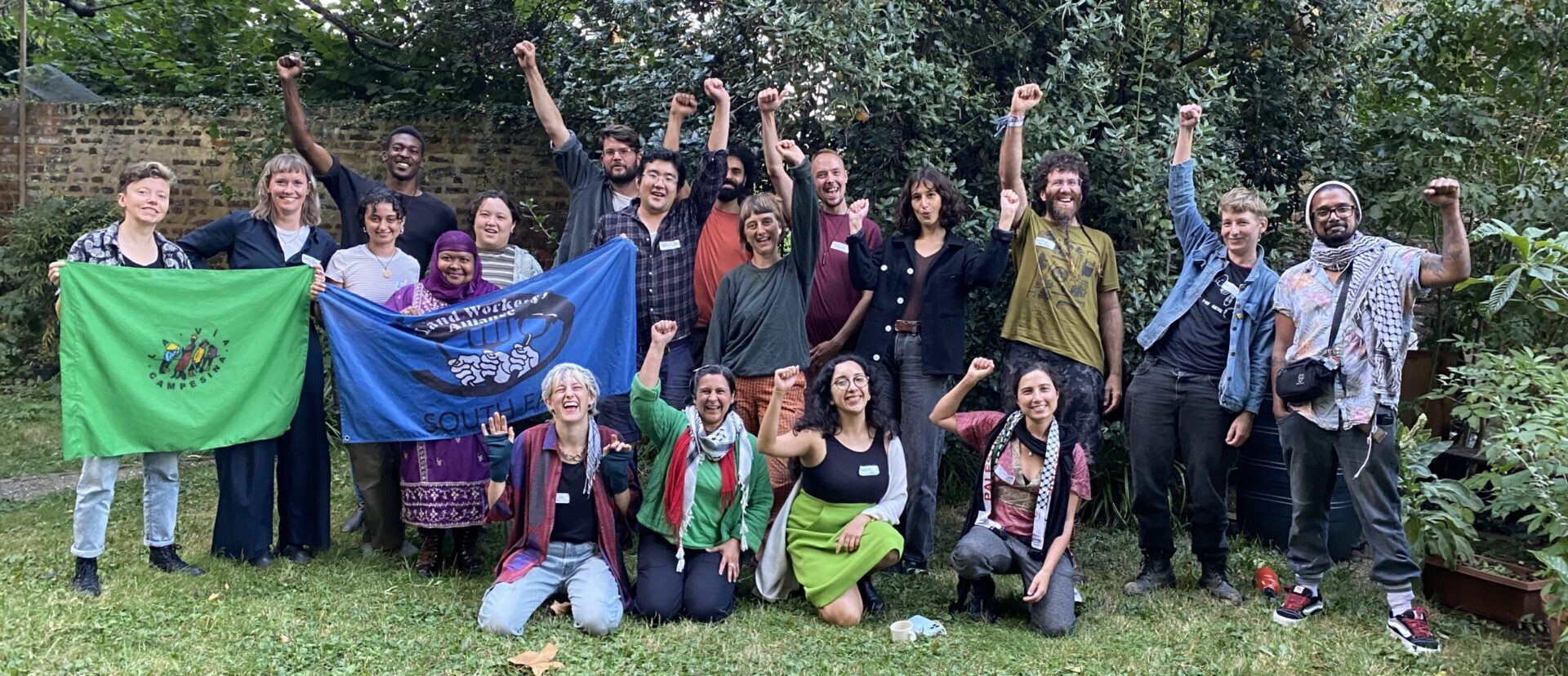Community Food Growers say no to GM Wheat trials.
We, the members of the Community Food Growers Network, affirm our opposition to the development of Genetically Modified (GM) plants and call for an immediate end to the open air trials of GM wheat at the Rothamsted research station.
As a network of Community Food Growers we work to create healthy and sustainable food systems for the benefit of local communities, their economies and environments. We believe that the open air testing and commercial growing of GM crops is a serious threat to sustainable food production, and that the co-existence of GM and non-GM crops is untenable.
The Genetic Modification of food crops represents the most destructive end of the industrial agricultural system that privileges the profit of corporations over the sustainability and resilience of global food systems. Wherever they have been cultivated, GM crops have been responsible for huge losses in agro-biodiversity, unpredictable cross contamination, and the dispossession of small-scale farmers.
We oppose the cultivation of GM crops for the following reasons:
The planting and cultivation of GM crops increases the control of multinational corporations over our food systems. These corporations use the intellectual property regime to strip farmers of their rights to save, exchange and grow traditional seeds while forcing them into dependence on GM seeds and associated inputs. [i] These corporations also use their financial and political power to gain access to land and water at the expense of small producers. [ii] GM endangers the livelihoods of small farmers and the sustainability of our food systems.
Through the standardisation of the seeds made available to farmers, GM is at the forefront of the genetic standardisation of plant varieties and a huge reduction in agro-biodiversity worldwide. [iii] By placing control of seed breeding in the hands of a few corporations, GM dramatically weakens the resilience of our food systems to sudden changes.
The open air cultivation of GM crops causes the cross-contamination of GM plants with non-GM plants leading to unpredictable results and a loss of consumer confidence in our produce. [iv] The open air trial of GM wheat puts the markets for our food and the health of our ecological systems at risk.
The cultivation of GM crops present significant obstacles to the creation of sustainable and socially just food systems and signifies a further act in the enclosure of global commons and natural heritage for private profit. We therefore call for an immediate end to the open air trials of GM wheat at the Rothamsted research station.
No to Privatisation and corporate control of food! No to open air GM wheat trials!
[i] The International Assessment of Agricultural Knowledge, Science and Technology for Development (IAASTD) report www.agassessment.org / BEDE. (2011). Seeds and farmers rights; how international regulations affect farmer’s seeds. www.farmersrights.org/pdf/semences_reglementations_EN.pdf
[ii] Busch, L., Lacey, W.B., Burkhardt, J., and Lacey, L. (1990). Plants, power and profit. Oxford, England: Basil Blackwell.
[iii] Altieri, Miguel (2001) Genetic Engineering in Agriculture: The Myths, Environmental Risks, and Alternatives (Food First).
[iv] European Coordiantion of La Via Campesina. (2010) ‘GMOs : The socio – economic impacts of contamination’. www.eurovia.org/spip.php?article305 And GM Contamination Register www.gmcontaminationregister.org

